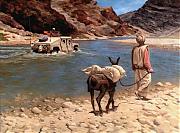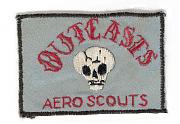Soldiers need a new set of skills and qualities to succeed at counterinsurgency.
"Forget everything you've been taught about this place, because it's either wrong or it's useless. Your education begins now," Army Sgt. James Jennings told a group of soldiers new to Baghdad in 2005. The grizzled veteran tried to teach his charges the complexities of counterinsurgency, where the battle is decided less by overwhelming firepower than by winning over hearts and minds.
He spoke with authority, having spent nearly a year patrolling restive western Baghdad. Jennings told the soldiers the Army was waging an entirely new type of war in which the traditional skills of fire and maneuver were less important than softer skills, such as cultural awareness and building trust and confidence among the Iraqi people.
Even though the Army has been fighting the shadowy insurgency for four years in Iraq, it has been slow to change its conventional approach: massing firepower on an enemy's formations.
The United States invaded Iraq with the world's most technologically advanced army and soon found itself losing to a nimble, adaptive enemy whose most effective weapons are the cell phone and Internet. The speed with which insurgents in Iraq adapt has confounded American military leaders. Army officers say they change tactics almost weekly because it takes insurgent cells just days to adjust to new techniques.
Thinking and adaptive. That's how Army officers almost universally describe the insurgents. They don't follow the predictable patterns of computer simulations, especially when facing death. Their adaptability stems in part from jihadi Web sites filled with lessons learned, dissections of successful and unsuccessful attacks on American troops, and insight about new tactics and weapons.
The Army remains too laden with tradition, too conservative, too hierarchical and rule-bound to cope effectively with its new enemy. Counterinsurgency is small-unit warfare, so leadership and command must devolve to lower levels. The most important field commanders are sergeants, lieutenants and captains - their decisions have strategic implications. But the Army remains focused on making brigades stronger and empowering generals. The Army must change. Its focus must shift to platoons and empowering junior officers - captains like Ike Sallee, for instance...














Bookmarks